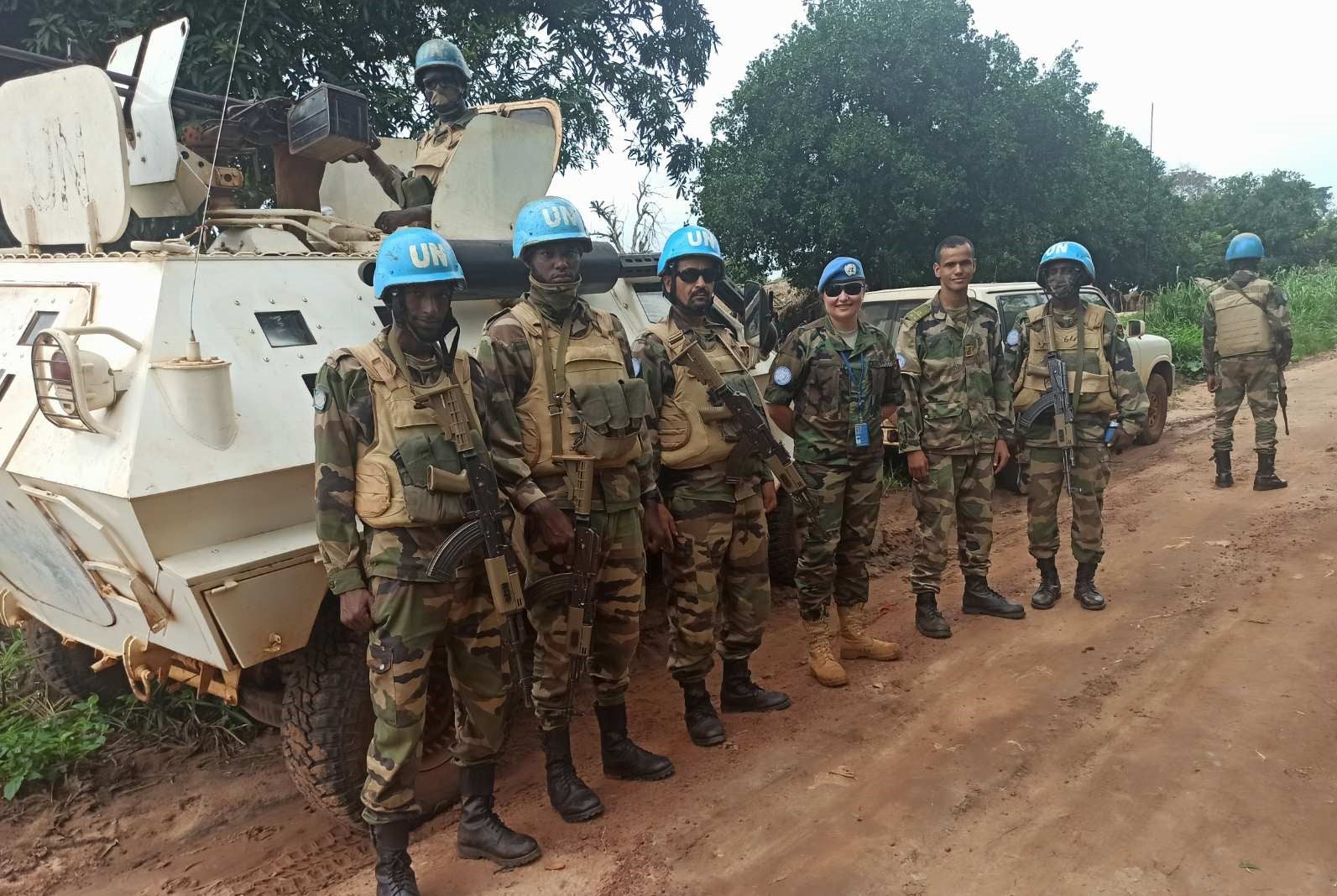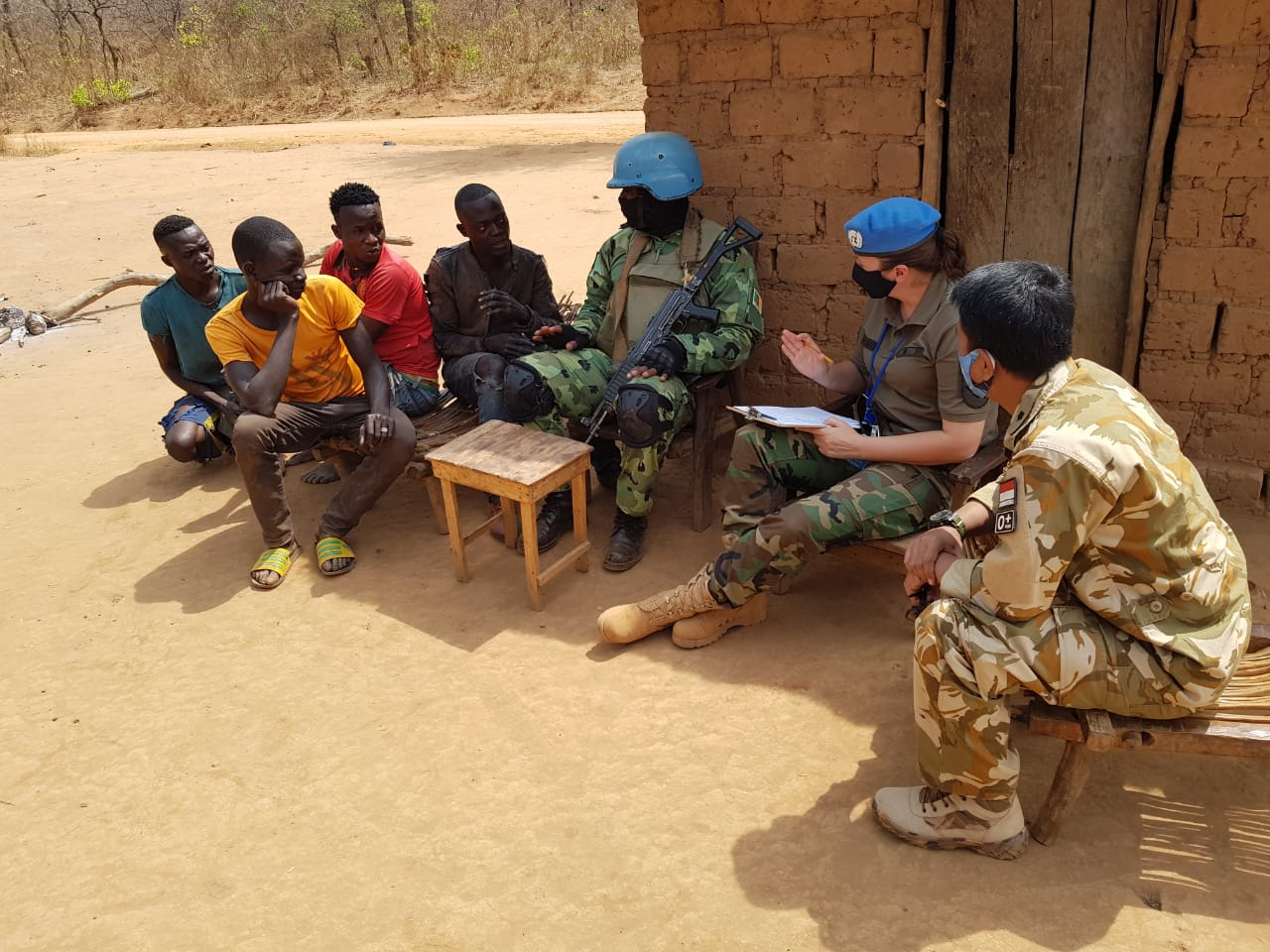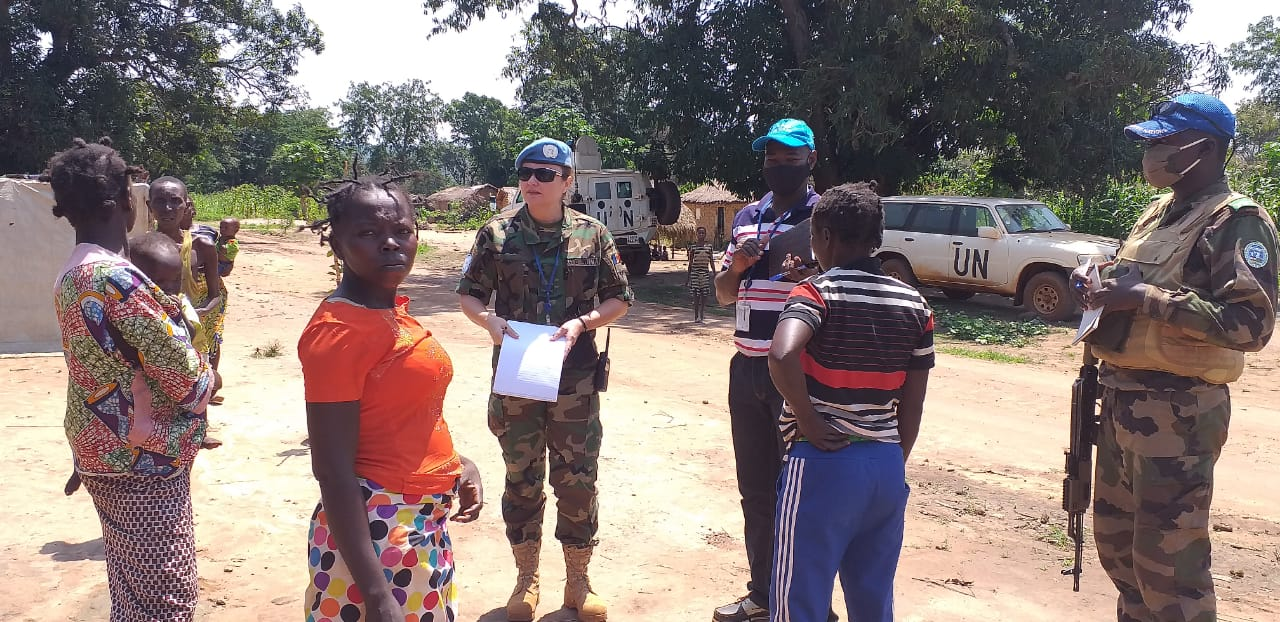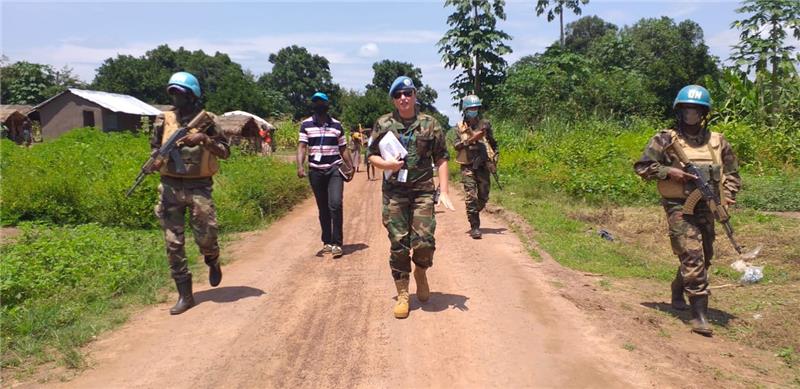In the words of Tatiana Scutari: "Peacekeeping missions taught me to appreciate peace"
Date:
Tatiana Scutari is a military woman who joined a peacekeeping mission in the Central African Republic for one and a half year. On the UN Peacekeepers Day, celebrated annually on May 29 worldwide, Tatiana shared her experience and motivation to participate in such a mission.

Photo credit: Courtesy of Tatiana Scutari
"I dreamed of becoming a military since I was a child. Being in military service, my elder brother’s work and uniform have always fascinated me. When I was already in the military, my colleagues’ stories from their peacekeeping missions impressed me a lot, and at some point, I decided to join them, too. Being also a mother of two, I couldn’t remain indifferent to the sufferings that children in some regions of the world were going through. It took me two years to make this decision, and it was my husband who convinced me to do it. He knew it was a big dream for me, while I was worried about my family. He had assumed to take care of our children by himself.
For one and a half year, I participated in a peacekeeping mission in the Central African Republic. Because of the pandemic outbreak, it proved to be quite a difficult period. All flights had been canceled for four months. For a country fully dependent on humanitarian aid, this was a disaster. There was neither food nor medicine in the region. I’ve seen many children die from malnutrition. It was a very difficult time for our entire team. Once the humanitarian aid has started to arrive again in the country, the situation has improved. The pandemic also posed difficulties in our interactions with the local population.

Photo credit: Courtesy of Tatiana Scutari
We could no longer hold the children in our arms, hug the people who needed our support, or shake their hands, which is very important in establishing connections with the local population. Our mission coincided with the presidential and parliamentary elections in the Central African Republic, which lead to the intensification of the armed conflicts in the region. We went through several very tense situations when I realized how important it is to have a great team. Backed-up by an honest and professional team, you can overcome any challenge. During our discussions with the locals, we were asking them about their needs and were trying to provide them with the necessary support. The locals were giving-up to their weapons, understanding that our aim was to help them.
I was never exempted of any duties because I am a woman. I had the same responsibilities as men. At the same time, I had a significant advantage compared to my male colleagues. Women, children, and even men tortured or abused were much more open to talk to a woman about what had happened to them. In the beginning, we were two women in the peacekeeping team, and then I remained the only one who had such conversations with the people who were subject to various forms of abuse. Unfortunately, the armed groups were not the only ones who made the women, children but also men suffer, domestic violence was also widespread in the region. A hug, a smile helped create a safer space for them to open – up about their experiences. I even learned some words in sango, the native language, and I was trying to talk to them in their own language. And it did matter a lot to the people.

Photo credit: Courtesy of Tatiana Scutari
The first few months were especially hard, and I felt emotionally overwhelmed. In our country you don't see those awful sufferings that the people there are going through. This can have a profound psychological impact on you. I was fortunate to always be supported by my loved ones and knew that the local inhabitants needed support. Our support does matter there. Locals are counting on the support of Blue Helmets, on both women and men peacekeepers. Their gratitude was fueling my motivation. At the end of the day, I felt exhausted, but extremely happy. Many locals cried when we left.
To me, it was a unique experience from every point of view. I got to see a new country. I had teammates from all over the world. I learned to live with the little I had and to appreciate the smallest things, even a simple cup of water. I’ve learned to appreciate peace. Definitely, I would recommend to all women and younger colleagues to get more involved in peacekeeping missions.”

Photo credit: Courtesy of Tatiana Scutari
International Day of UN Peacekeepers marked yearly on 29 May is an occasion to highlight the crucial role of women peacekeepers recognizing the importance of women's equal participation and full involvement in all efforts to maintain and promote peace and security. Deployment of more women helps improve overall peacekeeping performance. They may be better placed to interview and support women and girls who are survivors of gender-based violence, and children suffering from violence, generating critical information that would otherwise be difficult to obtain. Female peacekeepers also act as role models, inspiring women and girls in the often male-dominated societies where they serve.